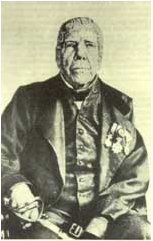Review of The Notebooks of Captain Coignet
Title: The narrative of Captain Coignet: Soldier of the Empire
Author: Jean-Roch Coignet
At a first glance, the subtitle of the book gives away immediately what this book is about. Captain Coignet was a soldier of the French Empire and served for sixteen years throughout various campaigns and battles. In total Coignet served for more than 16 years in the French army and he was involved in 16 campaigns. He fought in Austria, Spain, Italy, Prussia and Russia, and he wrote about his experiences.

Vivid Descriptions of the Battles
Initially, Coignet starts with his unhappy youth and the decision to become a soldier. Remarkable is that Coignet has served as a common soldier and rose to the rank of officer. He also did not learn to read and write until he was 33 years old, when it was necessary for a promotion. As a young man, he survived several of the bloodiest battles in European history, including the retreat from Russia (1812) and the battle of Waterloo (1815). He leaves an vivid description of the battles and countries that he has visited.
Serving in the Imperial Guard
For his bravery at the battle of Montebello Coignet was marked for service in the Imperial Guard, where he served for the remainder of his time in the army. His memoirs range from combat that he has experienced, as well as experiences in camps, at parties, or while in garrison. This sometimes results in funny situations. When asked about taking a napkin after a dinner, Coignet gives it back and excuses himself by saying that in the enemy’s country it is seen as a sign of neglect when you don’t take something from a dinner party.
More than once, Coignet is lucky to survive. During the battle of Marengo he only managed to survive, because he discarded all his possessions and grabbed the tail of a passing horse. He managed to hold on for a few paces, but it was enough to get him to safety. He then acquires a new gun and retreats with the rest of the army.
Coignet frequently writes about the courage that he witnesses, whether it is from his comrades or his superiors. More than once he comments on how a soldier or officer behaved bravely in combat. As he writes, “it may be said in praise of Marshal Ney that he kept the enemy at bay at Kowno [currently Kaunas in Lithuania] by his own bravery. I saw him take a gun and five men and face the enemy.”
Published in 1850
After retiring from the army, he settled in Auxerre, married and ran a shop together with his wife. In 1848, his wife, to whom he had been married for more than 30 years, passed away and he was left alone. At the age of 72, he was too old to start over and he felt despondent. In writing he found an outlet. In his writings, he could preserve the experiences of his youth, his campaigns and the things that he has witnessed. Coignet also ends his book with lesson, “Let [the parents] use every effort to have their children taught to read and write, and to train them well. This is the best inheritance, and is easily supported.”
Available for free
Being written in rough French, the memoirs were later edited by Loredan Larchay, who rewrote it to make it more accessible. This version was later translated in English and other languages and available for online. In the links below, you can download an English and a French version for free.